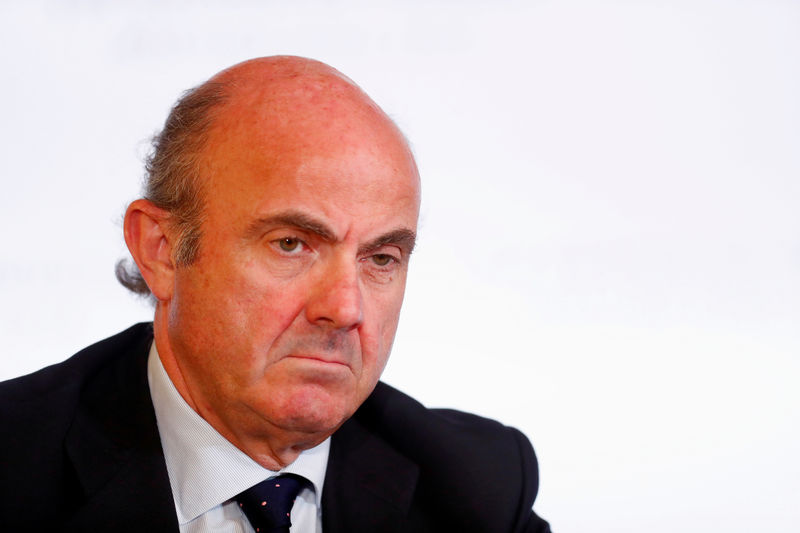 © Reuters. FILE PHOTO: Vice-President of the European Central Bank Luis de Guindos listens during news conference in Riga
© Reuters. FILE PHOTO: Vice-President of the European Central Bank Luis de Guindos listens during news conference in RigaFRANKFURT (Reuters) – There is no automatic link between European banks’ stress test results and their capital requirements, a European Central Bank spokesperson said on Wednesday, after the ECB’s second-in-command last week suggested a dozen lenders raise more capital.
ECB Vice-President Luis De Guindos said last Monday that the 12 euro zone banks that were left with capital worth less than 9 percent of their risky assets in the latest health checks “should increase robustness and enhance capital positions”.
The prospect of higher capital demands put analysts on alert as banking shares are already battered, the euro zone’s economy is slowing and financial markets are volatile.
But the ECB spokesperson said the test results would only be used on a “case-by-case” basis by its banking watchdogs.
“The individual bank results of the stress test are taken into account by microprudential supervision in its regular supervisory process, so only case-by-case,” the spokesperson said in an emailed statement. “There is no automatism.”
The case laid bare new differences between the Single Supervisory Mechanism (SSM), which oversees banks, and the ECB’s department in charge of financial stability, now headed by De Guindos.
Under his predecessor, Vitor Constancio, the two arms differed on issues such as unpaid bank loans, the treatment of sovereign debt and convertible bank bonds.
“As an institution with multiple functions, we also look at the stress test from a macro-prudential perspective which considers (the) financial stability of the whole industry,” the spokesperson added.
Germany’s Deutsche Bank (DE:) and France’s Societe Generale (PA:) and BNP Paribas (PA:) alone would have to raise 11 billion euros ($12.4 billion) between them if they were asked to meet De Guindos’ informal threshold, by Reuters’ calculations.
De Guindos, who joined the ECB’s board in June after leaving his job as Spain’s finance minister, is seen a candidate for replacing Sabine Lautenschlaeger as vice chair of the SSM when her term runs out early next year.
($1 = 0.8873 euros)
Fusion Media or anyone involved with Fusion Media will not accept any liability for loss or damage as a result of reliance on the information including data, quotes, charts and buy/sell signals contained within this website. Please be fully informed regarding the risks and costs associated with trading the financial markets, it is one of the riskiest investment forms possible.
Source: Investing.com





























